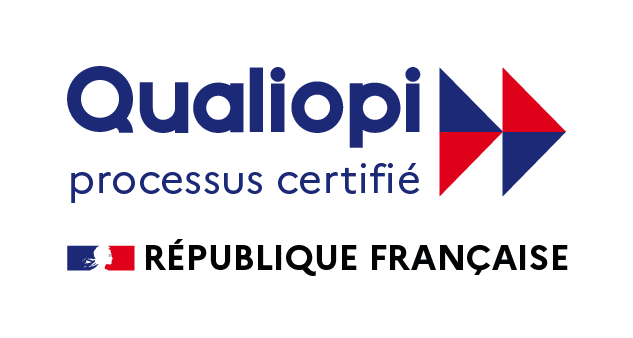“We are on the verge of a change comparable to the birth of computing: artificial intelligence will transform everything we do.”
– John McCarthy, one of artificial intelligence’s father
Inspired by neuroscience, Artificial Intelligence (AI) has seen rapid developments in recent years. In 2023, global AI investment reached $327 billion, the equivalent of Finland’s GDP¹ Thanks to AI, especially generative AI, it is now possible to create original works of art and musical compositions entirely generated by algorithms, opening new perspectives in areas that were seen as essentially human.. Grâce à l’IA, notamment l’IA générative, il est désormais possible de créer des œuvres d’art originales et des compositions musicales entièrement générées par des algorithmes, ouvrant de nouvelles perspectives dans des domaines qui étaient pourtant vus comme essentiellement humains.
And the same goes for companies, artificial intelligence (AI) positioning itself as a catalyst of transformation for many sectors (marketing, sales, product design, maintenance…), but also in Human Resources (HR). For Human Resources Managers (HR), talent managers, training managers and managerial development managers, the question that arises is this: should we fear AI in Human Resources or see it as an unprecedented opportunity? What impact can we expect from AI to transform Human Resources and their place in the company?
Generative AI's impact on productivity
Recent advances in generative AI offer promising prospects. According to a study by Boston Consulting Group (BCG)2, generative AI could significantly improve work performance, avec une augmentation potentielle de 10 à 20 % de l’efficacité opérationnelle, et même de 40% sur les tâches les plus créatives. En théorie, cette technologie permet d’automatiser des tâches répétitives, de générer des rapports détaillés et d’assister dans la prise de décision, libérant ainsi du temps pour des activités à plus forte valeur ajoutée.

But BCG also shows that on some tasks, especially solving complex problems, generative AI decreases productivity (-23%). To provide a warning on the fact of selecting well the use cases.
AI is already a reality in HR and has some pretty big successes. In recruitment, it allows for a fast and accurate screening of candidates, reducing the recruitment time by an average of 30%, according to a LinkedIn study1 . In talent management, AI helps identify key skills needed for the future and plan for succession. When it comes to employee well-being, AI tools analyze data for signs of burn-out and propose preventive interventions. According to a Deloitte 3 study, 33% of large companies are already using AI solutions to improve employee engagement.
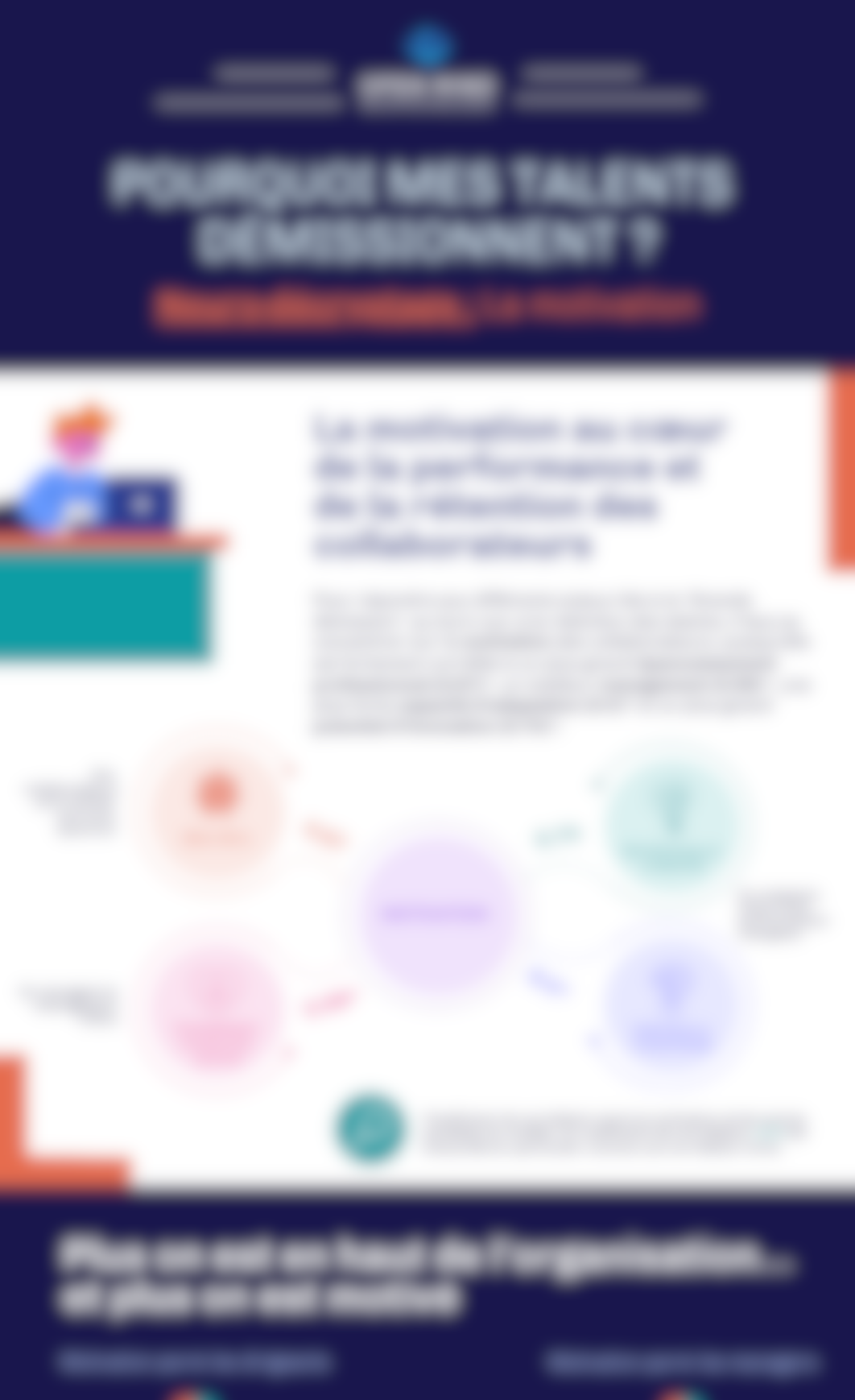
The opportunity to reduce administrative tasks
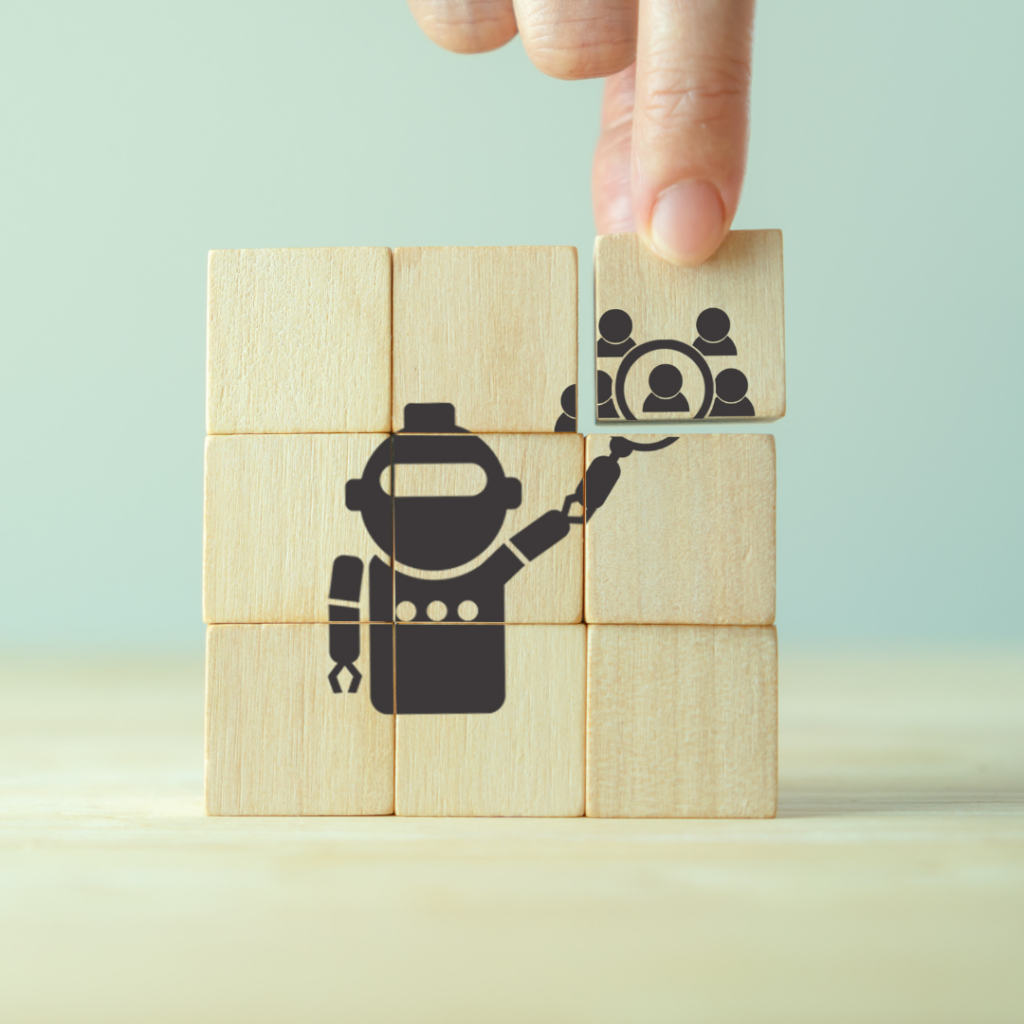
One of the most immediate benefits of AI in HR is the reduction of administrative tasks. Generative AI can analyze thousands of applications in record time, helping to identify top talent while reducing unconscious biases in the recruitment process. A concrete example of the use of AI in HR is Google. The company uses an AI algorithm to improve its recruitment process, reducing recruitment time by 20%.
In addition, Google has an AI program that is able to predict employees’ departure, allowing managers to take proactive measures to retain talents (IBM – United States).
Towards a more strategic HR function
The corollary of automation and time savings on low value-added tasks is obvious: positioning HR as the (even more) strategic partner for management. According to the 2023 Deloitte3 study, 70% of HR leaders now believe that their role plays a key role in business strategy, focusing on initiatives such as digital transformation and talent management to address economic and organizational challenges. Additionally, McKinsey found that companies that integrate HR into their strategic decisions see a 22% increase in operational performance .
By adopting advanced analytics tools, HR managers can better understand team dynamics, identify training needs and predict turnover risks, thus materializing the value of human capital in achieving company performance KPIs. According to an analysis by the McKinsey Global Institute, companies that invest in human capital and combine it effectively with their economic goals are 3.6 times more likely to become world leaders.
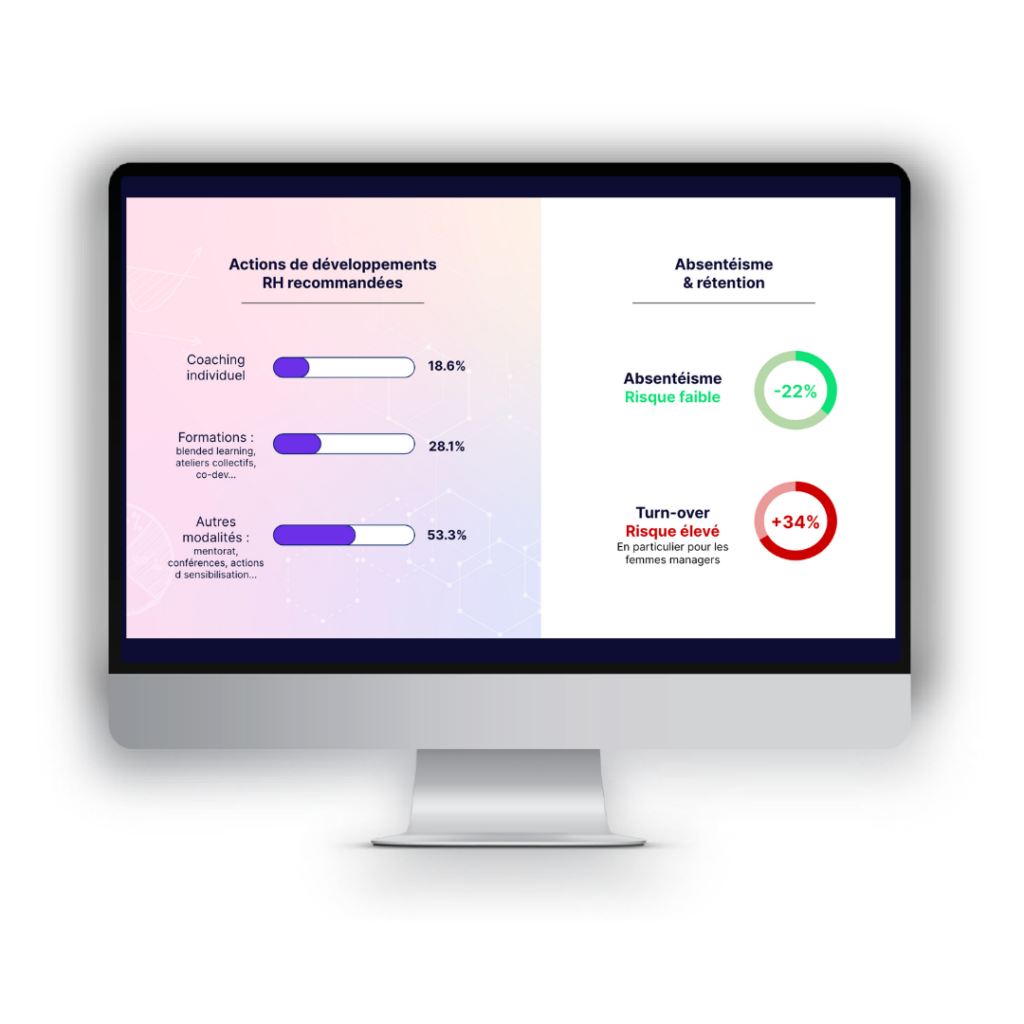
In addition, these companies show increased resilience, with a 4.3-fold higher probability of maintaining stable financial performance over a decade, and they have the lowest voluntary exit rates, while having 4 times more chances to be among the best companies to work for .
Personalization of supports and training
IBM⁸ uses AI to personalize employees’ career paths. By analyzing skills and past performance, AI recommends specific training and development opportunities for each employee, increasing talent satisfaction and retention ( IBM – United States) According to McKinsey, companies that adopt organizational models focused on human capital development see a 1-4 percentage point reduction in employee attrition, increasing employee retention and engagement.
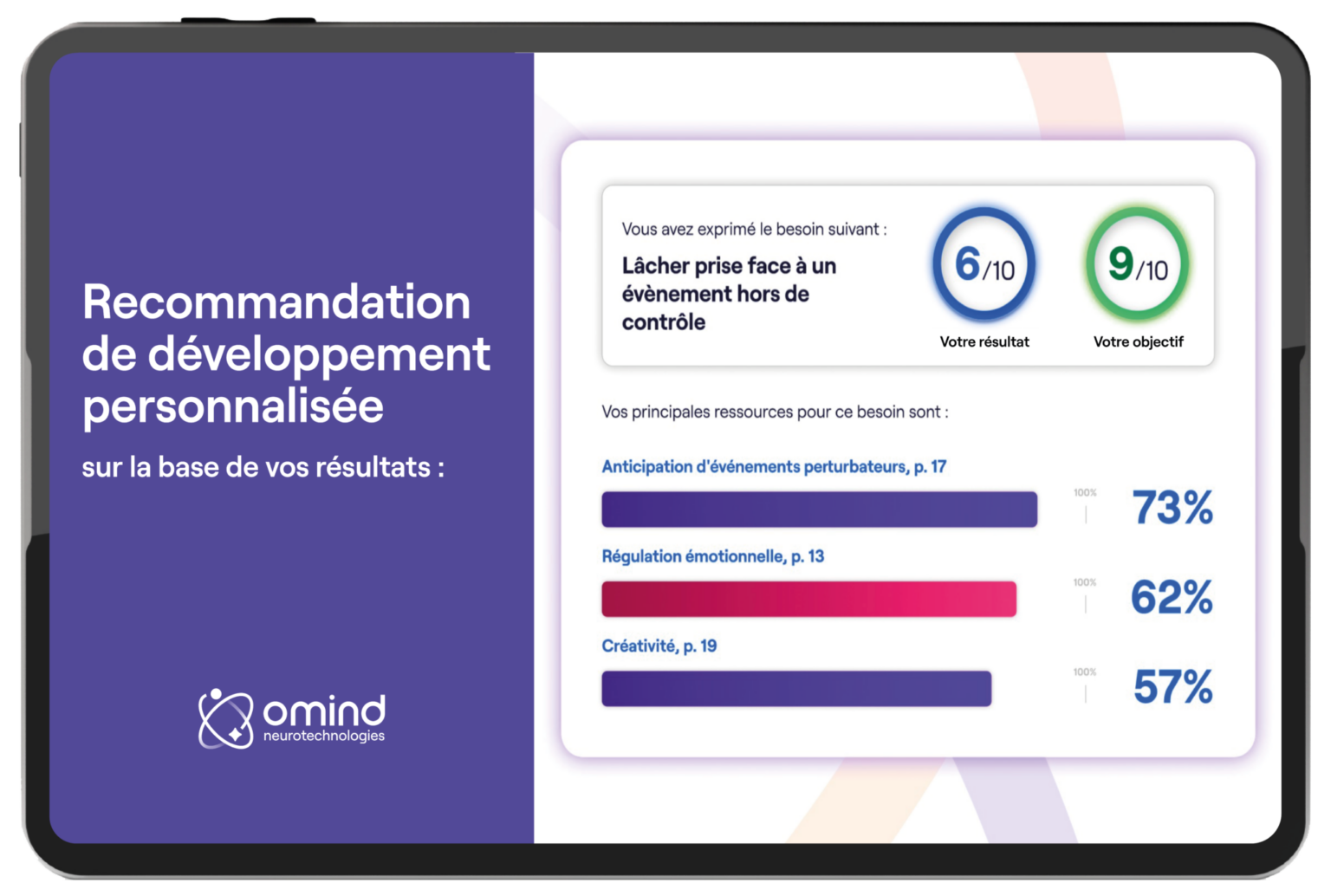
AI also allows training programs to be customized to the specific needs of each employee. For example, it can identify skill gaps and recommend appropriate training modules, ensuring faster and more effective skill development. This is fully in line with the new expectations of employees. One PwC study shows that 54% of employees prefer customized training programs to standardized training.
Legitimate fears linked to AI
Despite the many benefits, there are also legitimate concerns about adopting AI. France is one of the most anxious countries about generative AI, according to a LeMagIT survey, with 62% of professionals expressing concerns about the impact of this technology on employment and data privacy .
Indeed, HR professionals are concerned that AI will replace human jobs, reducing job opportunities. In addition, data privacy and privacy are major concerns, especially with the growing use of AI to monitor and analyze employee behaviors. Finally, there are concerns about the ethics of AI, especially regarding algorithmic biases that can replicate or exacerbate existing discrimination.

While all these fears are legitimate, they recall many of the fears at the time of the Internet’s deployment. They must therefore be accompanied, and that companies make the deployment of AI an opportunity to reaffirm their values and culture with force.
Practical recommendations for HR Directors:
Make the deployment of AI an opportunity to showcase your company’s values
- Education and continuous training : to mitigate fears and maximize the benefits of AI, it is essential to train HR teams on AI technologies. Continuing training will maintain a high level of competency and ensure a thorough understanding of the tools used.
- Transparence and communication : the implementation of AI must be accompanied by clear communication on its objectives and functioning. Involving employees early in the process can reduce anxiety and promote acceptance.
- Assessment and adjustment : take an iterative approach by regularly evaluating the performance of AI systems and adjusting processes based on feedback. This agile approach ensures that AI remains aligned with the organization’s strategic objectives.
- Ethical safeguards : Establish ethics committees to monitor the use of AI and ensure that it respects the principles of confidentiality, fairness and non-discrimination. These committees can also help anticipate the societal impacts of AI.
Conclusion
Ultimately, AI can become a powerful ally for HR, provided it is implemented in a thoughtful and responsible manner. Fears are part of the change process, but they can be overcome with appropriate management. As Peter Drucker said: “The greatest danger in times of turbulence is not turbulence, it is to act with yesterday’s logic.” It’s time for HR to embrace this technological change, positioning itself as a leader in organizational transformation.
Curious to find out how to integrate
Artificial Intelligence in your company?
Contact us to learn more!
Author : Clarisse Pamiès (CEO – Omind)
² “Generative IA: which impact on work performance?” (bcg.com)
³ State of AI in the Enterprise, 5th Edition, February 2023
⁴ “The State of AI in 2022” (McKinsey & Company)
⁵ Human, the key to sustainable business performance | McKinsey, 2023
⁶ https://www.mckinsey.com/fr/our-insights | McKinsey
⁷ https://www.mckinsey.com/fr/overview | McKinsey
⁸ “AI in recruitment – IBM Blog” (IBM.com)
⁹ France, the mots anxious country regarding generative AI | LeMagIT
¹⁰ Why the future of business is based on skills – LinkedIn 2019

